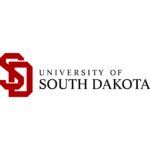This job listing has expired
Senior Scientist – Chief, Vaccine Immunology Program
Salary:
$163,964 - $191,900 per year
-
Full Time
- Bethesda, Maryland
- Posted 1 year ago
- Applications have closed
-
National Institute of Allergy and Infectious Diseases (NIAID)
Salary: $163,964 - $191,900 per year
Related Jobs
-

Dean, School of Health Sciences
University of South Dakota
- Full Time
- Posted 1 month ago
-

Fellowship Placement Coordinator (New York State Public Health Corps) – Temporary
Health Research, Inc.
- Full Time
- Posted 3 days ago
- December 25, 2025
-

Coordinator, Operations & Information Resources
National Council of State Boards of Nursing
- Full Time
- Posted 2 months ago
